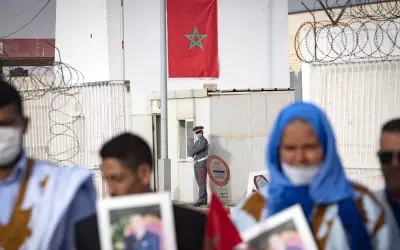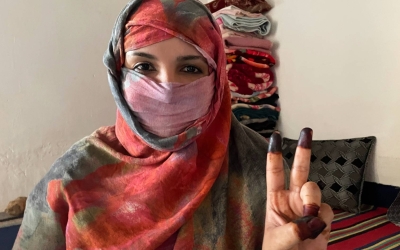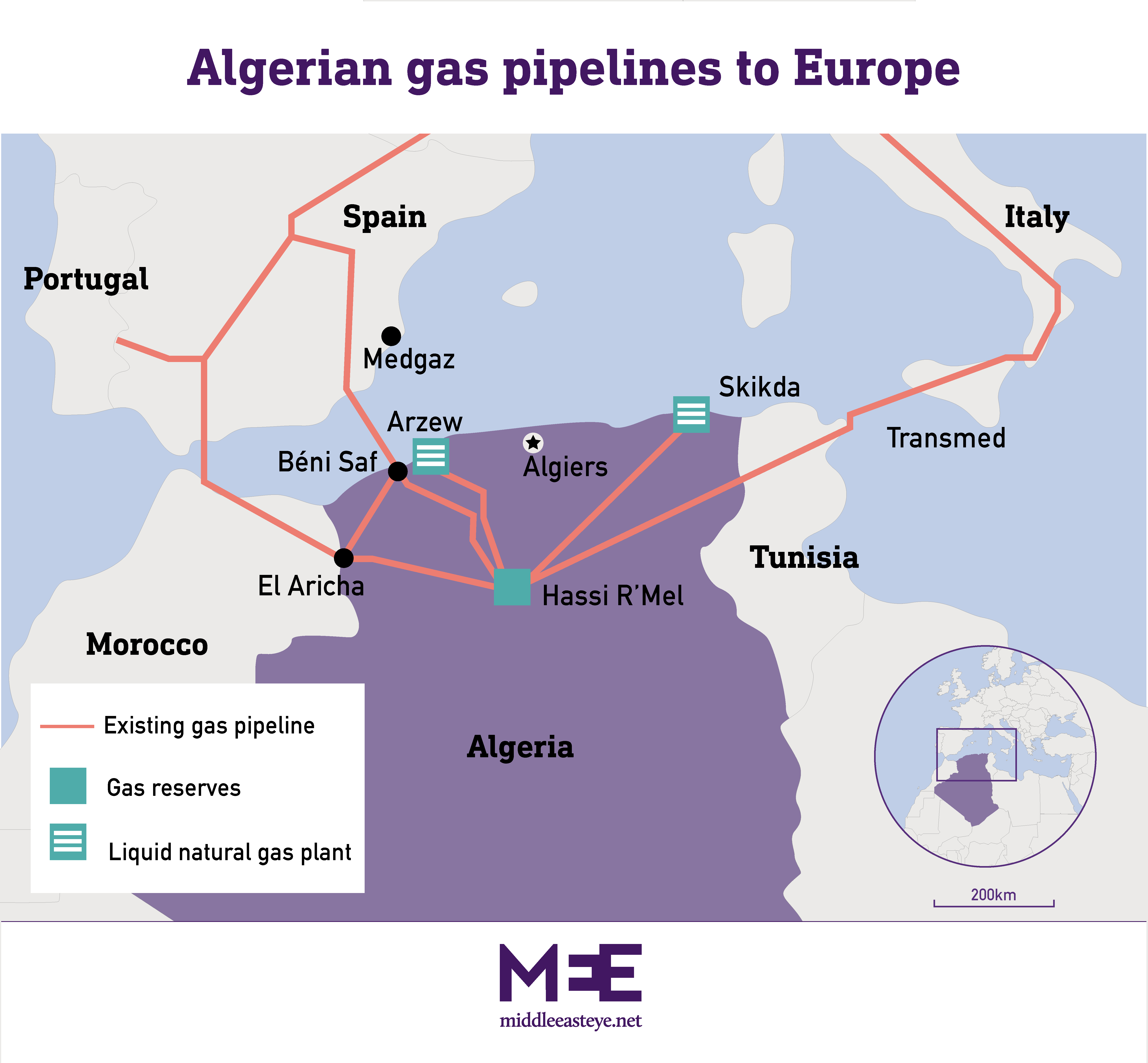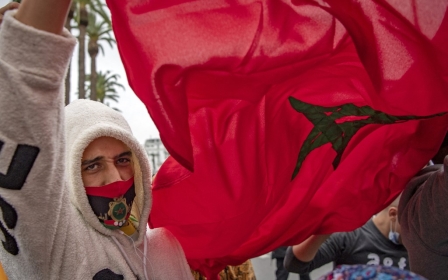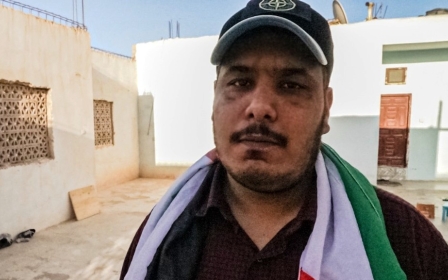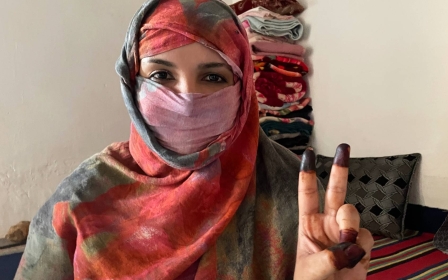Western Sahara: Algeria sees betrayal in Spain’s sudden support for Morocco plan
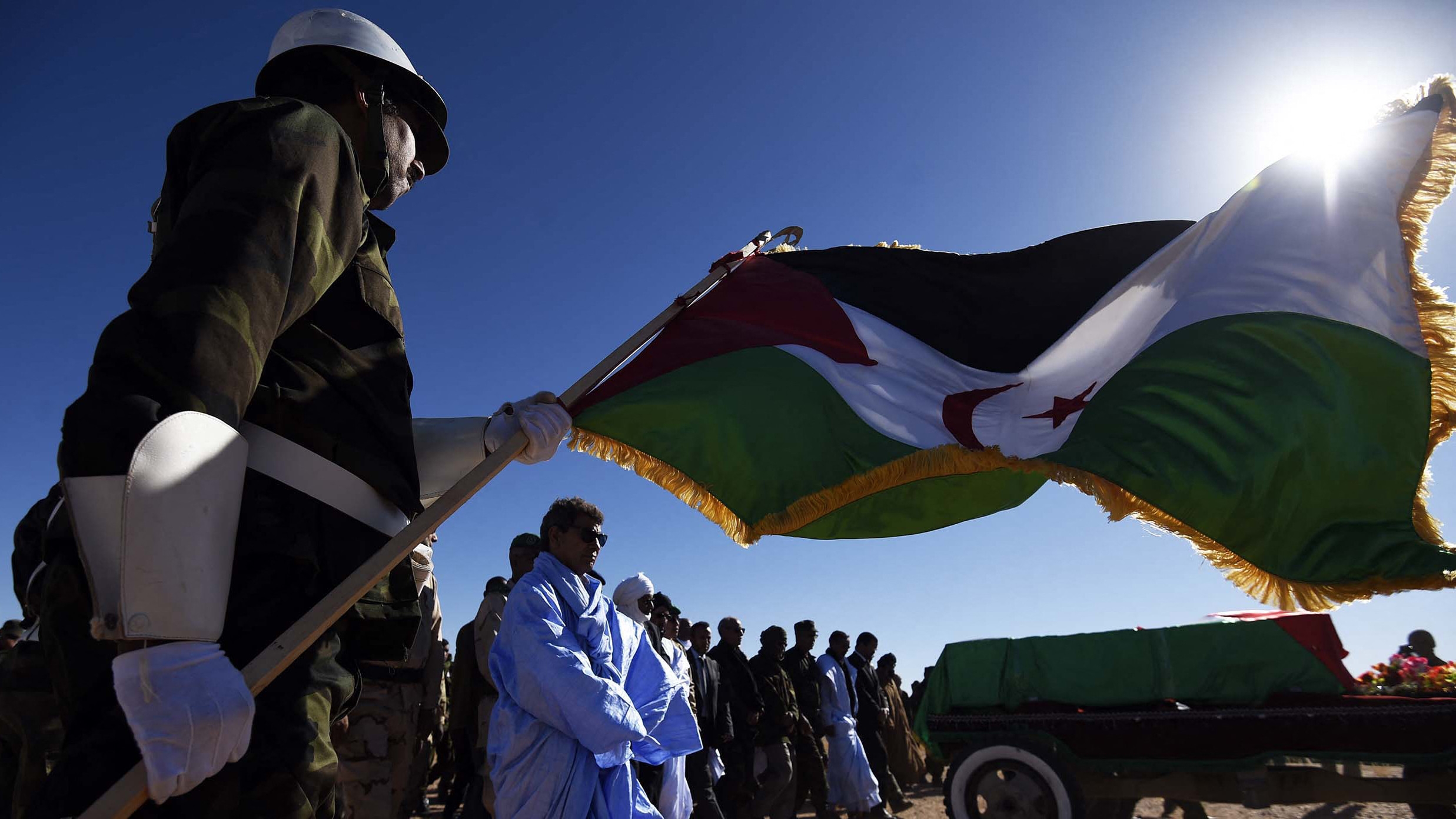
On Friday, Spain announced its support for Morocco’s autonomy plan for Western Sahara in an abrupt diplomatic U-turn.
The issue of the former Spanish colony, classified as a "non-self-governing territory" by the United Nations, is the source of a decades'-long conflict between Morocco and the Sahrawi independence movement, the Polisario Front. Supported by Algeria, Polisario in August 2021 broke off diplomatic relations with Rabat.
'Morocco has played its favourite card: using migrants as leverage'
- Algerian foreign office source
“We all know why Madrid is bowing to Rabat," an Algerian foreign office source told Middle East Eye. "Morocco has played its favourite card: using migrants as leverage.”
The move, they added, "has its roots in the diplomatic crisis of spring 2021".
New MEE newsletter: Jerusalem Dispatch
Sign up to get the latest insights and analysis on Israel-Palestine, alongside Turkey Unpacked and other MEE newsletters
In April of last year, Rabat and Madrid had a series of tense exchanges about the Covid-related hospitalisation in Spain of Brahim Ghali, leader of the Polisario Front.
Then, in May, a sudden influx of some 8,000 asylum seekers reached Ceuta, a Spanish enclave in Morocco.
Despite several witness accounts stating that they were able to get through because Morocco "took its eyes off the border", the moment was presented as a "migration crisis".
Rabat has regularly cited the status of Ceuta and Melilla, the sole land borders of the European Union in Africa, which have been under Spanish sovereignty since the 16th and 17th centuries, as a bone of contention - in particular to show its unhappiness with Madrid’s stance on Western Sahara.
Spain's stance has, until recently, been to respect UN Security Council resolutions that deem Western Sahara a non-self-governing territory, while calling for an independence referendum.
Since the influx of mid-May 2021, several thousand people have reached Ceuta and Melilla, according to the Spanish interior minister.
Summoned for consultations at the height of last year's crisis, the Moroccan ambassador in Spain has still not returned to Madrid, though Spanish officials continued to work on relations behind the scenes.
The two countries are used to cooperating. After France, more Moroccans live in Spain - around 800,000 - than in any other foreign country.
This January, King Felipe VI of Spain said he wanted to redefine Spain’s relationship with Morocco on "stronger and more solid grounds".
Ambassador recalled
Still, it was a shock in March when the Moroccan Royal Palace published a press release with a message from Spanish Prime Minister Pedro Sanchez stating that Morocco's plan for the "autonomy" of the disputed territory constituted the "most serious, realistic and credible basis for resolving the dispute".
The Polisario Front and Algeria, supporters of a referendum, were furious.
The position “lacks credibility, seriousness, responsibility and realism” said Polisario, calling it a "dangerous diversion".
'The Algerian authorities were at no point and at no level informed of this heinous deal signed with the Moroccan occupying power at the expense of the Sahrawi people'
- Polisario Front
“The Algerian authorities were at no point and at no level informed of this heinous deal signed with the Moroccan occupying power at the expense of the Sahrawi people.
“It is in breach of international law, it supports the occupation, it encourages aggression and the politics of fait accompli," read a stinging press release.
"It aims to legitimise the repression, war crimes and crimes against humanity and the plundering of wealth that Morocco continues to use against the Saharawi people," it added, "in violation of resolutions of international legitimacy."
For the representative of the Polisario Front in Spain, Abdullah Arabi, Sanchez "gave in" to Morocco’s "pressure and blackmail".
"The Spanish government has been trying for years to satisfy Morocco and has held an ambiguous line on the Western Sahara matter," he told Europa Press.
"Surprised by the abrupt U-turn," Algeria announced it was recalling its ambassador in Madrid.
For its part, the Spanish government assured that it had previously informed the Algerian government of its position.
“For Spain, Algeria is a strategic priority and reliable partner, with whom we intend to maintain a privileged relationship," said a Madrid government source.
But an Algerian source close to the matter contradicted this version of events to Algerian news site TSA: “The Algerian authorities were at no point and at no level informed of this heinous deal signed with the Moroccan occupying power at the expense of the Sahrawi people.”
On Saturday, a diplomatic source categorised the decision as "Spain’s second historical betrayal after the disastrous agreement of 1975”, in reference to the Western Sahara partition agreement between Morocco and Mauritania.
Is gas driving the negotiations?
“Spain betrays the Sahrawi people” ran the headline of Algerian daily El Watan after the announcement.
Another newspaper, L’Expression, wrote: “Madrid’s policy shift is all the more incomprehensible right now at a time when the US Congress is refusing to budge on the right of self-determination of the Sahrawi people. Congress has put Morocco in its place, reminding it of the wrongness of annexing a territory that doesn’t belong to it, without giving its inhabitants a vote.”
How will Algeria retaliate? The authorities, for example, could exert pressure by threatening gas supplies. But this is unlikely according to several diplomacy analysts contacted by MEE as the financial losses incurred would be too great.
According to Spanish daily El Mundo, the Spanish government also hopes that the import volumes purchased from Algeria since the start of the war in Ukraine "will pacify" Algiers.
In 2020, Spain was its top importer, a place taken in 2021 by the US.
After the breakdown in diplomatic relations with Rabat, Algiers suspended the Maghreb-Europe gas pipeline (GME), which supplies Spain via Morocco.
In September, Jose Manuel Albares Bueno, the Spanish foreign affairs minister, visited Algeria to express his government’s concerns.
At the time, the top Spanish diplomat indicated he had received "guarantees" from Algerian authorities about the supply of gas via another direct pipeline, Medgaz.
According to the Moroccan news site Le Desk, the new stance was "partly the fruit of negotiations in which Morocco laid down a condition for the restarting of the GME" in the opposite direction, allowing Morocco to import gas from its neighbour in the north.
The Spanish decision in favour of the Moroccan autonomy proposal coincides with the reaffirmation on 8 March by US Deputy Secretary of State Wendy Sherman of US support for the same plan, classifying it as "serious, credible and realistic".
On a visit to Algiers two days later, she pushed for the reopening of the GME, a request denied by the Algerian authorities.
Middle East Eye delivers independent and unrivalled coverage and analysis of the Middle East, North Africa and beyond. To learn more about republishing this content and the associated fees, please fill out this form. More about MEE can be found here.


